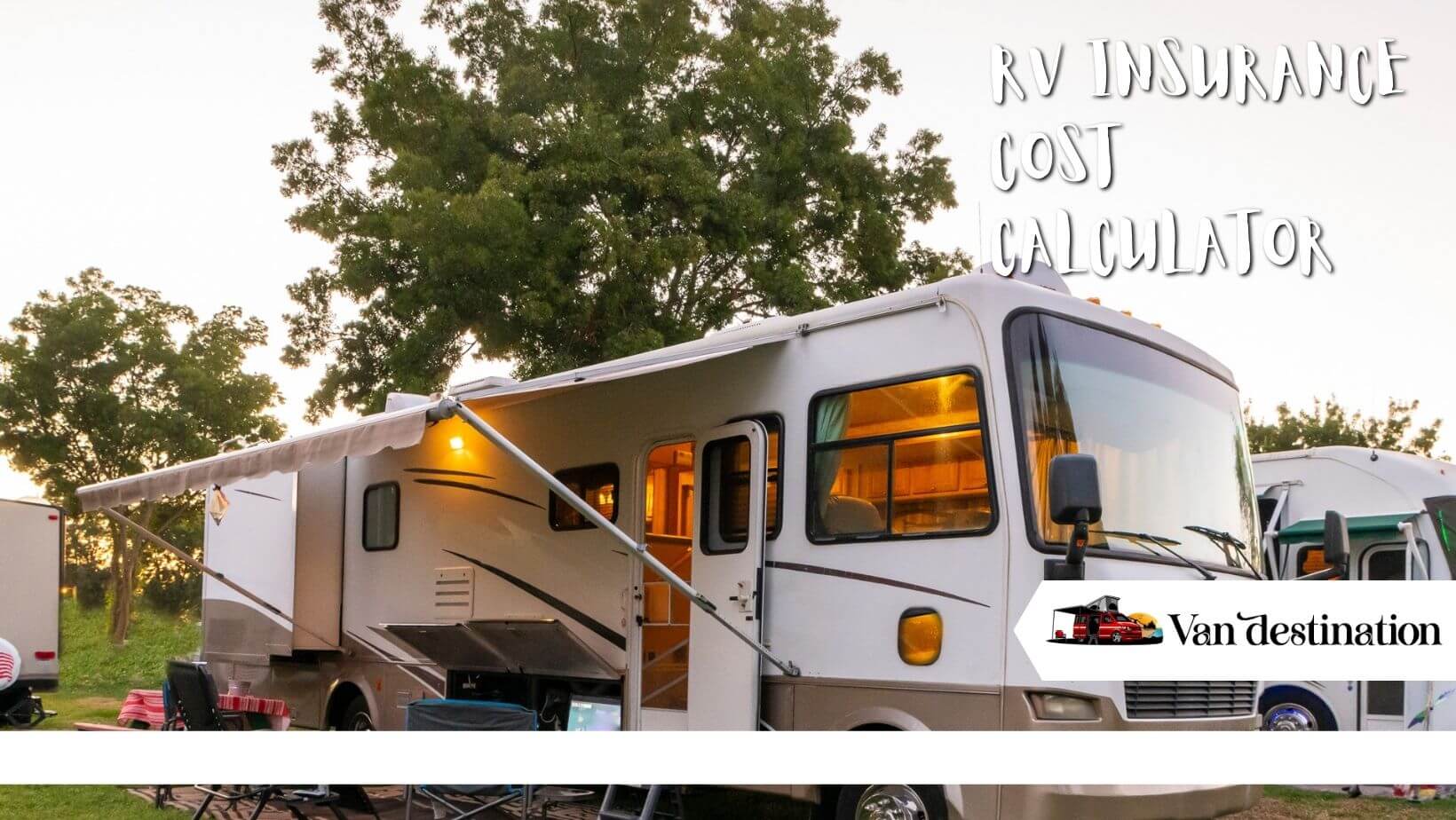RV Insurance Cost Calculator: Factors & Examples

Are you planning to hit the road in your beloved RV? Whether it’s for a weekend getaway or an extended journey, it’s important to have RV insurance that covers you and your vehicle. But with so many different coverage options and rates available, how do you know what kind of policy is right for you? That’s where an RV insurance cost calculator comes in handy.
An RV insurance cost calculator is a tool that helps you estimate how much your insurance policy will cost based on various factors such as the type of vehicle, its value, and your driving record. By using this tool, you can compare different policies from different providers and choose the one that fits your needs and budget.
Overview of RV Insurance
An RV insurance cost calculator is a tool that helps individuals estimate the cost of insuring their recreational vehicles (RVs). It takes into account various factors such as the type of RV, its value, usage, location, coverage options, and the individual’s personal details. By entering these parameters into the calculator, users can get an estimate of how much they can expect to pay for RV insurance coverage.
Factors Affecting RV Insurance Cost: Age, type, and Location
To create a comprehensive RV insurance cost calculator, you would need to consider the following factors:
- Type of RV: The calculator should allow users to select the type of RV they own or are planning to purchase. This could include options like motorhomes, travel trailers, fifth-wheel trailers, camper vans, etc. Each type may have different insurance rates based on factors such as size, weight, and amenities.
- RV Value: Users should be able to input the current value of their RV. This information helps determine the coverage limits and the cost of comprehensive and collision coverage.
- Usage: The calculator should ask users about how they plan to use their RV. This could include options like full-time living, occasional use, or seasonal use. The usage affects the insurance premium, as full-time RVers may require additional coverage compared to occasional vacationers.
- Location: Users should provide their primary location or where the RV will be primarily stored. Insurance rates can vary depending on the location due to factors like crime rates, weather risks, and regional insurance regulations.
- Coverage Options: The calculator should offer various coverage options such as liability, comprehensive, collision, uninsured/underinsured motorist, roadside assistance, and personal belongings coverage. Users should be able to select the coverage options they desire, and the calculator should adjust the estimated premium accordingly.
- Personal Details: Users may need to provide personal information such as their age, driving record, and insurance history. These details help insurance companies assess the risk profile of the individual and impact the final insurance premium.
- Calculate Base Premium: Each insurance company has its own pricing model, so it’s best to obtain quotes from multiple providers. However, you can estimate the base premium by considering factors such as the RV’s value, type, age, and driving record. You can also use online insurance calculators specific to RVs to get an approximate premium.
- Calculate Additional Premiums: Add premiums for each coverage type you selected in Step 2. Insurance companies apply different rates for each type of coverage, so consult with your insurer or use online resources to determine the cost of each type of coverage.
- Calculate Total Premium: Add the base premium (step 4) and the additional premiums (step 5) to get the total premium amount.
- Create a Table: Create a table with columns for coverage type, cost per coverage, and total cost. Fill in the table with the information from steps 2 and 5.
Also Read: 110-Volt Tankless Water Heater for RV
Example Table:
Here’s an example table that demonstrates the estimated RV insurance costs based on different factors:
| RV Type | RV Value | Usage | Location | Coverage Options | Personal Details | Estimated Premium |
|---|---|---|---|---|---|---|
| Motorhome | $100,000 | Full-time Living | California | Liability, | Age: 40 | $1,200/year |
| Comprehensive, | Driving Record: |
| Collision | Clean | |||||
|---|---|---|---|---|---|---|
| Travel Trailer | $50,000 | Occasional Use | Texas | Liability, | Age: 35 | $600/year |
| Collision | Driving Record: |
| Clean | ||||||
|---|---|---|---|---|---|---|
| Fifth-Wheel | $80,000 | Seasonal Use | Florida | Liability, | Age: 50 | $900/year |
| Trailer | Comprehensive | Driving Record: |
How to use an RV Insurance Cost Calculator: Inputting data and getting quotes
| Coverage Type | Cost per Coverage | Total Cost |
|---|---|---|
| Liability Coverage | $XXX | $XXX |
| Collision Coverage | $XXX | $XXX |
| Comprehensive Coverage | $XXX | $XXX |
| Personal Injury Protection | $XXX | $XXX |
| Uninsured/Underinsured Motorist Coverage | $XXX | $XXX |
| Roadside Assistance | $XXX | $XXX |
| Base Premium | $XXX | $XXX |
| Total Premium | – | $XXX |
Note: Replace the “XXX” with the actual cost figures obtained from your research and calculations.
Benefits of using an RV Insurance Cost Calculator
If you’re in the market for RV insurance, it’s important to understand the various factors that go into pricing. The good news is that you don’t have to do all of the research on your own. Instead, you can use an RV insurance cost calculator to compare prices and find the best deal.
One of the key benefits of using a cost calculator is that it allows you to easily compare different policies from multiple providers. With just a few clicks, you can input details about your RV and driving history and receive quotes from several different insurers. This not only saves time but also ensures that you are getting a fair price for coverage.
Another advantage of using an RV insurance cost calculator is that it helps you make informed decisions about which policy to choose.
Also Read: Is Living in an RV Van Cheaper Than Renting



